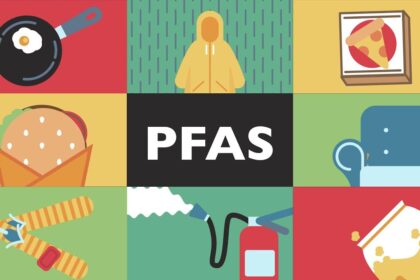Carrageenan: The Health Risks Behind the Common Food Additive
Carrageenan is a widely used food additive derived from red seaweed. It’s found in a wide range of processed foods, from dairy products like yogurt and ice cream to plant-based alternatives such as almond milk and soy milk. Despite its natural origin, carrageenan has come under increasing scrutiny due to concerns about its potential health risks. In this article, we will explore what carrageenan is, its applications in the food industry, and the reasons why it has been linked to various health problems.
What is Carrageenan?
Carrageenan is a polysaccharide extracted from red algae, primarily species belonging to the genus Chondrus crispus. The extraction process involves boiling the algae, which releases the carrageenan into the water. Afterward, the liquid is filtered, concentrated, and dried, resulting in a powder that can be used as a thickener, stabilizer, and emulsifier in foods.
There are two main types of carrageenan: degraded and undegraded. Degraded carrageenan, also known as poligeenan, is produced by subjecting carrageenan to acid hydrolysis, which reduces its molecular weight. This form is not approved for use in food due to its known harmful effects. However, undegraded carrageenan, the type commonly used in food, is considered safe by regulatory agencies like the U.S. Food and Drug Administration (FDA) and the European Food Safety Authority (EFSA). Despite this, growing evidence suggests that even undegraded carrageenan might pose significant health risks.
How is Carrageenan Used?
Carrageenan’s primary function in the food industry is as a thickening agent. It helps to improve the texture and consistency of products, making them more appealing to consumers. For example, in dairy and non-dairy milk, carrageenan prevents separation of the liquid, maintaining a uniform texture. It’s also used in processed meats to bind water and enhance moisture retention, giving products like ham and sausages a better mouthfeel.
Beyond its use in food, carrageenan is also found in various non-food products, including toothpaste, air fresheners, and cosmetics. Its widespread use is attributed to its versatility and effectiveness in creating stable and appealing products.
Health Concerns Surrounding Carrageenan
Despite its utility, carrageenan has been associated with several health issues, particularly related to digestive health. Research suggests that carrageenan may cause inflammation, which is a significant concern given that chronic inflammation is a precursor to various diseases, including cancer.
1. Digestive Issues and Inflammation
One of the most widely reported health concerns related to carrageenan is its potential to cause digestive problems. Studies on animals have shown that carrageenan can trigger inflammation in the gastrointestinal tract. This inflammation can manifest as bloating, diarrhea, and abdominal pain. In some cases, prolonged exposure to carrageenan has been linked to the development of ulcers and lesions in the intestines.
A study published in Environmental Health Perspectives found that carrageenan could activate immune cells in the gut, leading to an inflammatory response. This response is particularly troubling for individuals with pre-existing digestive conditions such as irritable bowel syndrome (IBS) or inflammatory bowel disease (IBD). For these individuals, carrageenan may exacerbate symptoms and contribute to disease progression.
2. Impact on Gut Health
Emerging research suggests that carrageenan may negatively affect gut microbiota, the community of microorganisms living in the intestines. A healthy gut microbiota is crucial for overall health, playing a role in digestion, immune function, and even mental health. Disruption of this delicate balance, known as dysbiosis, has been linked to numerous health problems, including obesity, diabetes, and autoimmune diseases.
A study in the Journal of Toxicology found that carrageenan altered the composition of gut microbiota in mice, leading to an increase in harmful bacteria and a decrease in beneficial bacteria. This shift in the gut’s microbial population could potentially contribute to the development of chronic diseases, particularly those related to inflammation and immune dysfunction.
3. Potential Carcinogenic Effects
While the evidence is not conclusive, there are concerns that carrageenan may have carcinogenic effects. Some studies suggest that carrageenan could promote the development of tumors, particularly in the colon. For instance, research conducted by Dr. Joanne Tobacman at the University of Illinois found that carrageenan could induce the formation of colon tumors in rats. While these findings were in animal models, they raise important questions about the long-term safety of carrageenan consumption in humans.
The concern is that carrageenan’s ability to cause chronic inflammation could, over time, lead to the development of cancer. Chronic inflammation is a known risk factor for cancer, as it can cause DNA damage and promote the proliferation of cancerous cells. Although more research is needed to fully understand this risk, the potential link between carrageenan and cancer is alarming enough to warrant caution.
4. Immune System Impact
There is also evidence to suggest that carrageenan may adversely affect the immune system. Inflammation triggered by carrageenan can lead to an overactive immune response, where the body’s immune system begins attacking its own tissues. This type of immune dysfunction is at the core of autoimmune diseases like rheumatoid arthritis, lupus, and multiple sclerosis.
A study published in the Journal of Biological Chemistry found that carrageenan could inhibit the activity of certain immune cells, weakening the body’s ability to fight off infections. This finding suggests that regular consumption of carrageenan-containing foods could potentially impair immune function, making individuals more susceptible to illness.
Regulatory Perspective and Public Health Implications
Despite the mounting evidence of carrageenan’s potential health risks, regulatory agencies have largely maintained that it is safe for consumption. The FDA and EFSA have set limits on the amount of carrageenan that can be used in food products, but these limits are based on the assumption that undegraded carrageenan is harmless.
Critics argue that these regulations do not take into account the potential long-term effects of carrageenan consumption, particularly its role in promoting inflammation and possibly cancer. They call for more stringent testing and reevaluation of carrageenan’s safety, especially given its widespread use in foods that are consumed regularly by a large portion of the population.
For consumers, the potential risks associated with carrageenan present a dilemma. On one hand, it is a naturally derived ingredient that enhances the texture and stability of many foods. On the other hand, the growing body of evidence linking carrageenan to inflammation, digestive issues, and possibly cancer suggests that it might be better to avoid it when possible.
Conclusion: Should You Avoid Carrageenan?
Given the potential health risks associated with carrageenan, it may be wise to limit your intake of foods containing this additive. While not everyone who consumes carrageenan will experience adverse effects, individuals with sensitive digestive systems or those at risk for inflammatory conditions might be more vulnerable.
Reading food labels carefully and choosing products that are carrageenan-free can help minimize exposure. Many brands now offer alternatives that do not contain carrageenan, especially in the realm of plant-based milks and dairy products.
In the end, the decision to avoid carrageenan is a personal one, but it’s essential to stay informed about the potential risks. As research continues to shed light on the effects of carrageenan, consumers may find it increasingly necessary to prioritize their health by choosing products that support overall well-being.





